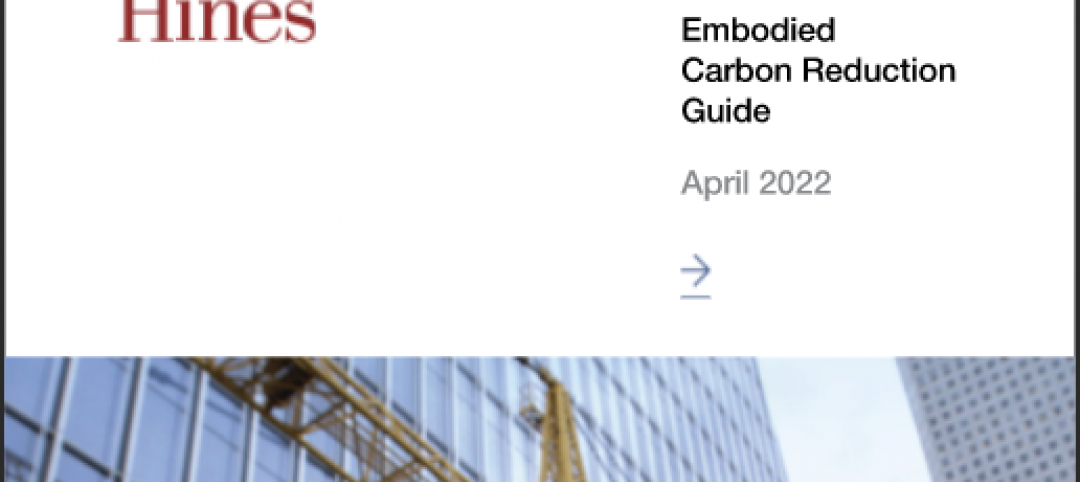Women account for more than half of the U.S. population. But even with significant gains over the past 25 years, their numbers and positions among the ranks of practicing architects appear to have stalled.
The reasons could be a combination of too few role models, mentors, and advancement opportunities, based to a statistical analysis of women’s progress in this field by the Association of Collegiate Schools of Architecture (ACSA).
Looking at recent data from a wide range of sources—including the Bureau of Labor Statistics, AIA, National Architectural Accrediting Board, the National Center for Education Statistics, and the National Council for Architectural Registration Boards—the association found that while the number of female architectural students and graduates has stabilized at around 40%, the number of women working in architect roles has also stopped increasing, and hasn’t gone much higher than 25%.
Indeed, AIA’s Foresight Report indicated that, in 2011 (the latest year for which data were available), only 30% of its women members were associates in their firms, and only 17% were principals or partners. In fact, just 15% of AIA’s licensed members were women that year. And a mere 13% of Intern Development Program supervisors, who review the work of intern architects submitting IDP hours, were female.
“Even with a sizable margin of error it is clear that there are far fewer women in practice than in school,” said Lian Chikako Chang, ACSA’s Director of Research and Information, who authored this report.
The reasons why this “leaky pipeline” persists, however, are less clear.
While Chang doesn’t state this outright, the perception of women architects as second-class citizens might have its roots in academia, where only around one quarter of lecturers, directors, heads and chairs of U.S. architectural schools are female, and only 19% of deans.
It could also be argued that women are leaving the profession at higher rates than men because they are discouraged by the lack of industry recognition their work receives. Only 5% of all TOPAZ Medallion recipients have been women, and about the same percentage of Pritzker Prize winners. Since 1907, only one of the 69 AIA Gold Medals has been awarded to a woman, and that was posthumously in 2014.
“With the share of awards going to women increasing by about 5% each decade, if we continue at this pace we’ll be waiting until 2080 to see a 50-50 split,” Chang notes sardonically.
While the author offered no specific prescriptions, Chang asserted that a more systematic approach to professional development will be required in order to encourage and support women in progressing and achieving as architects at rates more equal to those of men.
“The data reviewed here suggest that we should focus particularly on two areas: first, what happens before applying to and enrolling in architecture school; and second, what happens at higher levels in the profession, academia, and related practices,” she said.
Related Stories
Legislation | May 4, 2022
Washington is first state to mandate all-electric heat for new large buildings
Washington recently became the first state to require all electric heat for new buildings.
Building Team | May 4, 2022
Mancini Acquires Gertler & Wente Architects, Expanding the Firm's Opportunities in New Market Sectors
National design firm Mancini Duffy - with a 100+-year-old history and tech-forward approach based in New York City - announces the acquisition of Gertler & Wente Architects to further expand its footprint in the healthcare, multi-family residential, restoration, institutional, and religious sectors.
Contractors | May 4, 2022
CFC Construction names Pat Smith president
CFC Construction is proud to announce that Pat Smith has been promoted to President of the Colorado-based general contractor.
Sponsored | Healthcare Facilities | May 3, 2022
Planning for hospital campus access that works for people
This course defines the elements of hospital campus access that are essential to promoting the efficient, stress-free movement of patients, staff, family, and visitors. Campus access elements include signage and wayfinding, parking facilities, transportation demand management, shuttle buses, curb access, valet parking management, roadways, and pedestrian walkways.
Sponsored | BD+C University Course | May 3, 2022
For glass openings, how big is too big?
Advances in glazing materials and glass building systems offer a seemingly unlimited horizon for not only glass performance, but also for the size and extent of these light, transparent forms. Both for enclosures and for indoor environments, novel products and assemblies allow for more glass and less opaque structure—often in places that previously limited their use.
Architects | May 3, 2022
A U.K.-based design firm flaunts industrialized construction as it expands into U.S.
Bryden Wood wants to set up a network for manufactured components for repeatable building types.
Codes and Standards | May 3, 2022
American Institute of Steel Construction updates environmental product declarations
The American Institute of Steel Construction has released updated environmental product declarations (EPDs) “to help designers and building owners design more environmentally friendly buildings and bridges,” according to an AISC news release.
Education Facilities | May 2, 2022
Texas School for the Deaf campus gateway enhances sense of belonging for deaf community
The recently completed Texas School for the Deaf Administration and Welcome Center and Early Learning Center, at the state’s oldest continuously operating public school, was designed to foster a sense of belonging for the deaf community.
Codes and Standards | May 2, 2022
Developer Hines, engineer MKA develop free embodied carbon reduction guide
Real estate management and investment firm Hines has released the Hines Embodied Carbon Reduction Guide. The free guide, produced with Magnusson Klemencic Associates (MKA), is the result of a two-year effort, relying on MKA’s industry-leading knowledge of carbon accounting and involvement in programs such as the Embodied Carbon in Construction Calculator (EC3) Tool.
Building Team | May 2, 2022
HED and VAI announce merger to bring strategic expertise and drive community impact in Dallas
HED (Harley Ellis Devereaux), a leading national architecture and engineering firm, today announced a merger with award-winning, Dallas-based VAI Architects Incorporated (VAI).

















